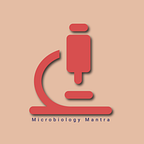Importance of Microbiologists in Pharmaceuticals
Pharmaceutical microbiology deals with the production of pharmaceutical products, and subsequently minimizing or eliminating the microorganisms in a process environment. Pharmaceutical microbiologists play an important role in both quality control and quality assurance departments.
Types of Pharmaceutical Products
Pharmaceutical products are either sterile or non-sterile. The non-sterile pharmaceutical products are expected to meet certain microbiological purity criteria recommended by the pharmaceutical monographs. Although these products are non-sterile, they must not exceed the maximum acceptable microbial count and also, they should not contain certain specified microorganisms, whose presence is not acceptable. The presence of specified microorganisms in non-sterile products causes adverse effects on the product. The non-sterile drugs are administered orally and applied externally. Examples include tablets, oral suspensions, ointments, etc.
On the other hand, the sterile products must be completely free from microorganisms, as they are directly administered into the bloodstream. That is the reason sterile products are either terminally sterilized or aseptically manufactured. That is where the real challenge lies. Great care must be taken to prevent microbial contamination at each stage of the manufacturing process, right from the raw materials to the finished product. The manufacturing facilities, man and material movement should be so designed that they minimize the entry of microbes into the product. The objective of any pharmaceutical industry is to produce drugs that are intended for patient safety. Therefore, it is important that the people working in this sector have good knowledge of microbiological principles and techniques. It is also important that the non-microbiologists from production, engineering, and quality who work in cleanrooms are expected to have basic knowledge of microbiology. These workers should be familiar with the characteristics of microorganisms, microbial growth, microbial detection methods, environmental monitoring, and the importance of disinfection, aseptic gowning, etc. To achieve this, each employee who is working in cleanrooms must be trained on personal hygiene, basic microbiological principles good manufacturing practices, etc.
Impact of False-Positive Results
Aseptic techniques are not just confined to the manufacturing process, microbiologists should also apply aseptic techniques while collecting and testing the samples. They must ensure that there is no external contamination of the product during sampling and testing. The microbiological test results should reveal the contaminants that were introduced only during the manufacturing process not by any other resources. The contamination of the product during sampling and testing may lead to false positive results. The false positive results represent the contamination of the sample due to compromised aseptic behavior by the operator during collection and testing, while the actual product is sterile. This will further lead to a full-scale investigation, loss of time, effort, money, and sometimes reputation. Therefore, in both, sterile and non-sterile pharmaceutical industries, the role of a microbiologist is very important.
The entire process of manufacturing is concerned with controlling the number of microorganisms. and finally ensuring that the finished product is either sterile or free from the specified microorganisms. As the major number of drug product recalls are associated with microbial contamination, the importance of pharmaceutical microbiology has significantly evolved. When a drug product is recalled, there will be a huge business loss and damage to the brand’s reputation. The management has to put a lot of effort into regaining the loss. In some cases, the loss can never be recovered. In addition to this, regulatory authorities routinely conduct inspections to ensure all operations are being performed as per the established guidelines, and their focus will be more on the microbiological aspects.
What does a Microbiologist do?
The microbiologist in the pharmaceutical industry ensures the sterility of the product, determines antimicrobial effectiveness, analyses the endotoxin levels, monitors the microbial load in the environment, and many others as described in Pharmacopoeias. All these tests shall be performed in a quality control microbiology laboratory by a qualified microbiologist. Pharmaceutical microbiology is not just confined to laboratory testing. Microbiologists in the pharmaceutical industry can also serve as subject matter experts in designing the contamination control strategy and can be a part of process risk assessment and identifying the critical sampling locations of utilities and the environment.
In recent years, the demand for pharmaceutical microbiologists has increased significantly due to the growing emphasis on drug safety, quality control, and regulatory compliance in the pharmaceutical industry. As the industry expands, microbiologists play a crucial role in ensuring the sterility and efficacy of pharmaceutical products, contributing to the overall growth of this profession.
Join our “Pharmaceutical Microbiology Course” to enhance your career opportunities.
